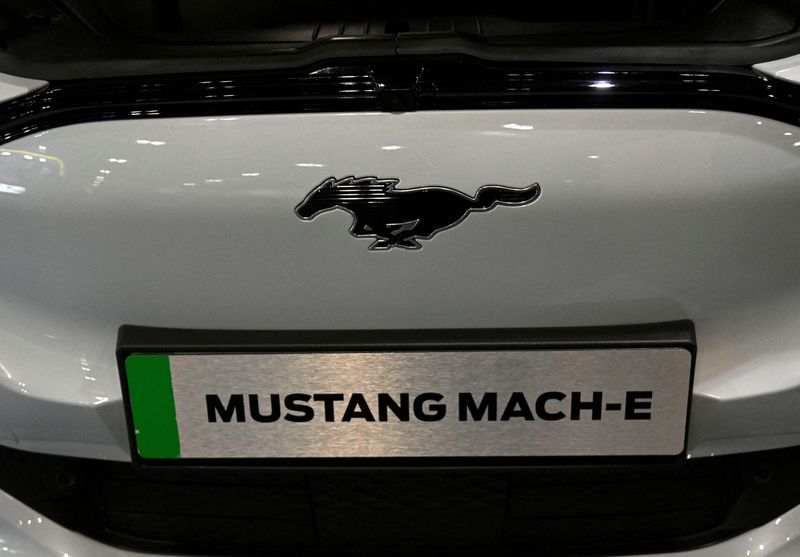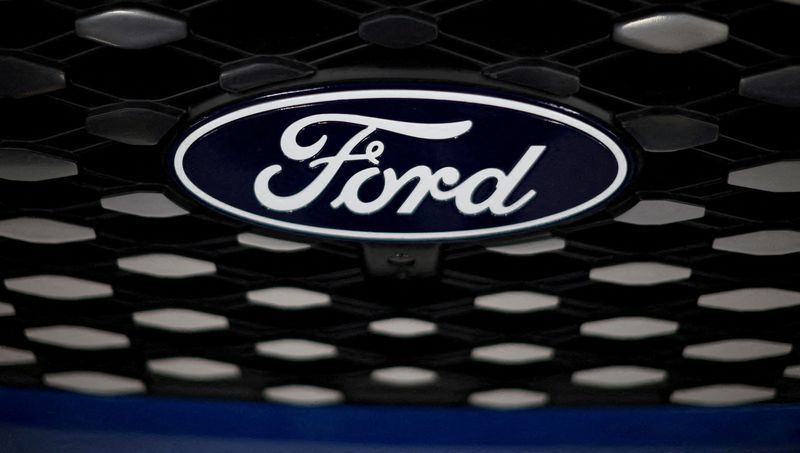By David Shepardson
(Reuters) -U.S. auto safety regulators said on Monday that they are investigating whether Ford Motor (NYSE:F)'s 2022 recall of nearly 49,000 Ford Mustang Mach-E electric vehicles adequately addressed concerns and whether it should be expanded to more vehicles.
Ford issued the June 2022 recall because high voltage battery main contactors may overheat from DC fast-charging and repeated wide-open pedal events, which could result in an immediate loss of propulsion power, increasing the risk of a crash.
Following the recall for 2021 and 2022 model year vehicles, Ford issued a technical service bulletin to replace the High Voltage Battery Junction Box on recalled vehicles.
The National Highway Traffic Safety Administration (NHTSA) said it has opened a recall query into 64,000 Mach-E vehicles after receiving 12 consumer complaints regarding vehicles that received recall fixes.
Ford said Monday it is "working with NHTSA to support their investigation."
Ford's recall fix was software updates to monitor contactor temperature and reduce battery power to prevent damage to the contactor, and to monitor contactor resistance to identify an overheated contactor and reduce vehicle power to prevent further damage.
One owner told NHTSA that two days after receiving the software update, the vehicle suffered a second catastrophic failure of its High Voltage Battery Junction Box.

The driver and family were driving from the San Francisco Bay Area to Los Angeles, and the car exhibited a "Service Vehicle Soon" warning and was limited to only 30% of available power until they arrived at a dealership.
Another Mach-E driver in Florida told NHTSA that shortly after charging at a DC fast charge station, the screen panel said "safely stop now" and the car came to a complete stop within a few seconds in the middle of a highway on-ramp. After several hours, the driver was able to restart the vehicle and travel for three miles before the car stopped again.
